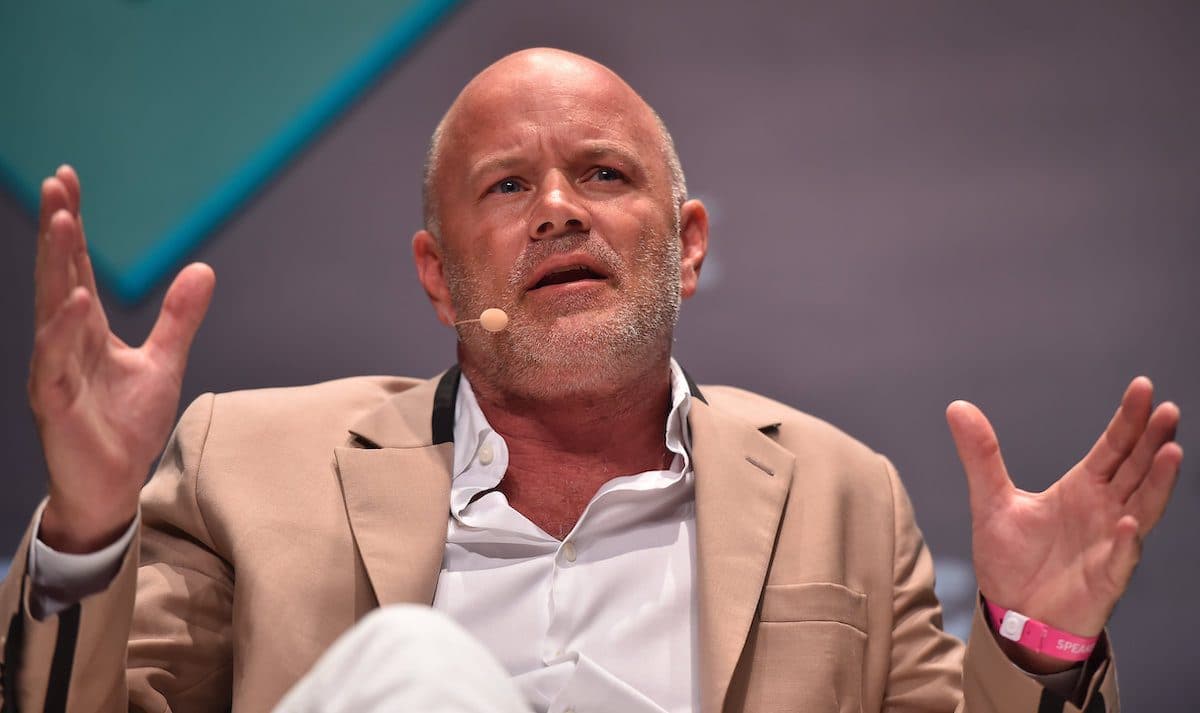Where are the ‘Magic Self-Driving Internet Money Machines’?
DeFi has taken the world by storm, but there are a few more steps until it’s ready for institutional finance, Galaxy Digital’s Mike Novogratz and others argued on a recent Blockworks webinar

Mike Novogratz, CEO, Galaxy Digital; Source: Seb Daly / RISE via Sportsfile
key takeaways
key takeaways
- Satisfying regulators about the issue of KYC/AML is key to further integrating DeFi into institutional finance
- A big part of this would be an attitude shift, from libertarian free-for-all to embracing regulations
Institutions are keen to integrate decentralized finance (DeFi) but the hurdle of rules around know-your-customer (KYC) and anti-money laundering (AML) and regulatory uncertainty makes institutions take pause, according to Galaxy Digital’s CEO Mike Novogratz and others featured on a recent Blockworks webinar.
“I’ve had lunches and dinners with the CEOs of the eight biggest banks in the last two weeks. The realization that bitcoin was a missed opportunity has dawned on them. But bitcoin wasn’t a threat. DeFi is a threat,” Novogratz said. “Most institutions are behind on the curve.”
Institutional skepticism — what needs to be overcome to move from an exploratory conversation to implementation — comes down to laws around knowing who you’re dealing with and ensuring you are doing what you can to stop money laundering.
“How am I going to get comfortable that on the other side of the smart contract is not a terrorist financer or a North Korean,” Novogratz quipped.
The ‘64,000 question is’, he continued, we love you for being 82 or 46 percent compliant with your good customers, your white labels, but we really don’t like the blacklist customers.
Although this risk is small, it occupies a considerable portion of the mindshare of regulators, panelists agreed.
Automation skepticism
Then comes the question of technology. Part of DeFi’s efficiency stems from the fact automation is integrated into its DNA. Automated Market Makers, which power the liquidity pools that allow for DeFi to provide impressive yield, might not be ‘battle tested’. In theory, the code works, and there are tens of billions of dollars of successfully closed transactions to prove it, but automation brings skeptics.
Fireblocks CEO Michael Shaulov equates it to the skepticism transportation regulators have towards self-driving cars. A car crash, much like a market crash, can be an expensive event and there are questions of liability when anything automated is involved.

“It’s a matter of being battle-tested. How are we going to regulate self-driving cars? What does autonomy mean from a regulatory standpoint?” he said.
“I don’t think the community has articulated the benefits clearly enough on why DeFi is so awesome,” added Novogratz. “The big macro is ‘we’re going to cut out the rent takers, look at these yields I’m getting’. But there needs to be more articulation of why this could change, why it could be the platform of the new generation.”
Novogratz equates it to the iPhone. Once Apple added a camera and GPS, while properly articulating the benefits of both, the mobile revolution really kicked off and next came Uber.
Some of this might also come from a knowledge gap, Shaulov believes. How is it that these “magical internet machines can give me 6% APY, but I can’t get it from my regular bank.” After all, unlike a bank, these protocols are overcollateralized. Meaning there’s extra insulation against a run or a crash. But the fact that their inner workings aren’t widely understood is problematic.
What about DeFi bank runs?
On the topic of bank runs, Stani Kulechov, CEO and Founder of Aave, said that DeFi is the antidote to this.
“Part of the problem in 2008 is that we didn’t know how exposed banks were to each other. What makes DeFi beautiful is that because of blockchain you can look at the exposure. You can see the balances available,” he said.
Case and point, last month’s digital asset crash. While the market hasn’t recovered yet, it also didn’t implode.
“We had a crash. We recovered. The system works. Might have been painful for a lot of consumers, but the system worked. My big hope and worry is that we don’t have regulatory overreach. There’s a need to engage with DC,” Novogratz said.
Part of avoiding regulatory overreach is a shift in mindset away from a libertarian-leaning ‘screw it, they knew the risk. Buyer beware’, as Novogratz explained this doesn’t resonate at all with regulators, to something where there’s more concern about how the customer is treated.
And of course, hiding from this or moving offshore to a far-flung jurisdiction isn’t really the answer. Institutions won’t be able to get involved without regulatory clarity.
The long arm of the law is really long, Novogratz reminded the panel’s audience, and US authorities are happy to engage in extraterritorial enforcement.
“Just ask Arthur Hayes,” he said.





